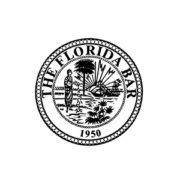By Jim Ash
The Uniform Commercial Real Estate Receivership Act became law July 1, marking a new era for Florida courts — and the culmination of four years of relentless diplomacy by the Business Law Section.
Given the collateral damage COVID-19 has inflicted on the economy, the timing couldn’t be better, said BLS Executive Council Chair Leyza B. Florin.
“It’s a big accomplishment,” Florin said. “Of course, this couldn’t have been anticipated, but with the economic fallout from COVID, and all the closures, the first thing that will be affected when people stop paying their rent is commercial real estate.”
Florida is one of only nine states that have adopted UCRERA since 2017.
Drafted in 2015 by the National Conference of Commissioners of Uniform State Laws, UCRERA creates a process for state courts to appoint a receiver in disputes that arise over commercial real estate, typically a default.
Supporters say that once appointed by the court, a neutral receiver can manage an asset and prevent it from falling into disrepair. Florin offers the example of a waterfront restaurant that goes out of business and is forced to close. Without someone to keep the power on and the air conditioner humming, mold would soon take over, she said.
Florida judges have the power to appoint receivers, but before UCRERA, there was no statute that addresses the process for commercial real estate disputes.
Florin said the credit belongs to members of the Business Law Section Uniform Commercial Real Estate Receivership Act Task Force.
Former Executive Council Chair Jon Polenberg created the taskforce in June 2016. He appointed Miami attorneys Kenneth Murena and Amanda Fernandez, both with Damian Valori, as co-chairs, and asked them to determine whether the proposal was right for Florida and whether the section should support it.
From the beginning, UCRERA was a tough sell, even to task force members.
“We’re dealing with people who represent both debtors and creditors in the Business Law Section, people who practice on both sides,” Fernandez said. “There was definitely a lot of push back.”
“I’m not exaggerating, it took more than a year to build consensus,” Murena said. “We started with the people who were 50-50, and then we worked on the doubters.”
Fernandez, who specializes in complex business litigation, is a former chair of the Business Litigation Committee. Murena, who is a federal court-appointed receiver and a receiver’s counsel, has been active in the Bankruptcy/UCC Committee. They worked on their respective constituencies.
Murena considers himself one of the UCRERA’s biggest cheerleaders.
Whenever the issue arose in one of his cases in state court, Murena said he found himself having to explain the process to judges and other litigants.
“It was a lot of educating the parties and the judge on how the receivership should operate, the purpose of the receiver, the benefits of the receiver, and how the receiver can help the court administer the particular assets that were subject to the receivership,” he said.
State courts would differ on whether or when to appoint a receiver, Murena said.
“There is no well agreed upon body of law that governs receivership across the state of Florida,” he said. “I always thought it would be helpful because the case law in Florida, there is some development, but it is not necessarily so consistent across the state.”
Finding consensus within the Business Law Section was only half of the battle, Murena said. The taskforce reached out the Real Property, Probate and Trust Law Section to deal with a host of their concerns, and made a presentation to the RPPTL’s annual conference. A RPPTL liaison was appointed to the taskforce.
Some RPPTL members objected to the definition of certain exemptions to a “carve out” for real property, Murena said. Other critics opposed a provision that would have imposed an automatic stay. But the definitions were narrowed, and the automatic stay became permissive instead of mandatory, without weakening the thrust of the legislation, Murena said.
“We added in a very specific provision saying this statute does not affect homestead, because that’s sacrosanct in Florida,” Murena said. “We wanted the RPPTLs to not only be okay with this, but to be behind it.”
In addition to RPPTL support, the task force also worked with the Florida Bankers Association and the Florida Land and Title Association. The revised version also had to be reviewed by the Uniform Law Commission, which requested more changes, Murena said.
Taskforce members say Rep. Mike Beltran, R-Valrico, was an enthusiastic and engaged sponsor. Beltran, an attorney, is a member of the Judiciary Committee.
“I actually had a case, and this is a real problem,” Beltran said. “We had a commercial landlord, they went through multiple bankruptcies, they didn’t complete their bankruptcy plan, and they were pocketing the rent, and this bill prevents the debtor in possession from pocketing rents to the detriment of the landlord.”
HB 783 and a companion, SB 660 by Sen. Lori Berman, D-Boynton Beach, passed both chambers unanimously.
“There were an amazing amount of voices and interests that had to be heard, it’s definitely a step-by-step process,” Murena said. “To me, it was sort of like, where there’s a will there’s a way — you just have to be patient.”
The Business Law Section is sponsoring a CLE, “Course 3922: Florida’s Commercial Real Estate Receivership Law Substantively Changes July 1, 2020, Are You Prepared?” on July 30. Featured panelists include U.S. Bankruptcy Court Judge Mindy Mora, of Florida’s Southern District, Second District Court of Appeal Judge Edward LaRose, Manuel Farach, and Kenneth Murena.
Click here to read the original article.



